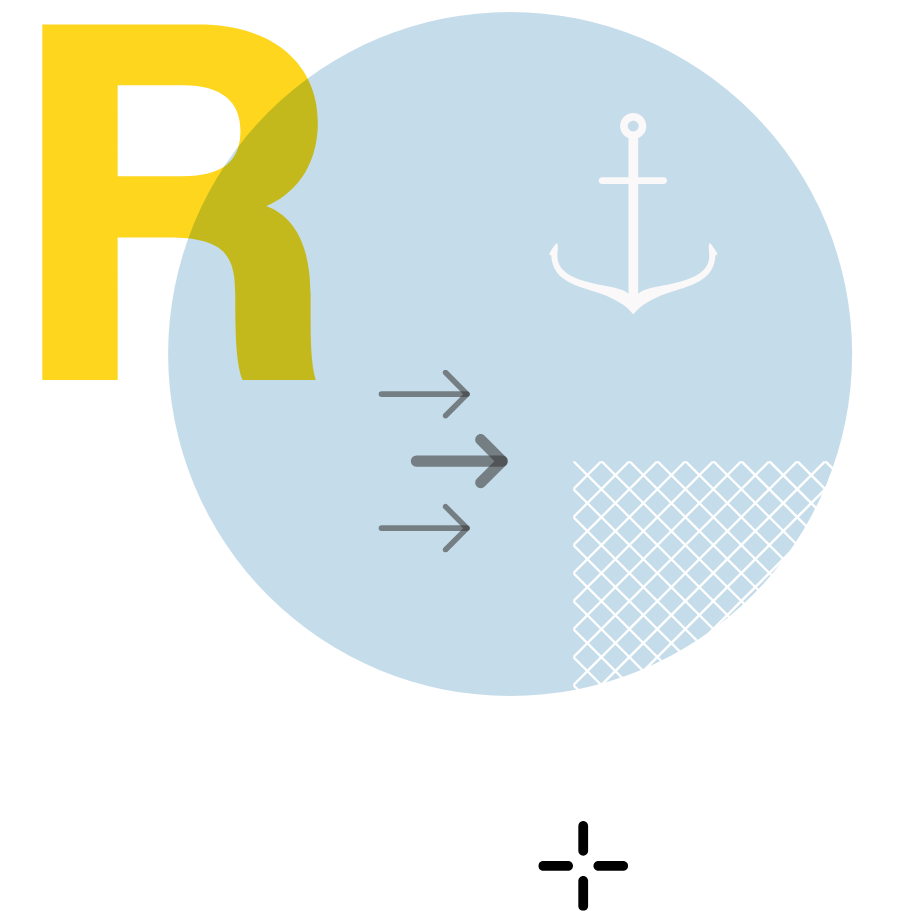Year in review 2021
2021 started with COVID-19 imposing lockdowns in Europe and globally. Nevertheless, shipping continued to deliver despite uncertainty. As vaccination campaigns started to be rolled out in Europe, shipowners faced new challenges to guarantee seafarers’ mobility as key workers. Shipowners across Europe worked tirelessly with ports, national governments and health authorities to ensure access to vaccination to their crews. Belgium was among the countries that lead the way with its vaccination scheme for seafarers in spring 2021. Both at EU and Member State level, shipowners advocated for seafarers to be prioritised in national vaccination strategies and aimed to ensure that the specificities of the seafaring profession are recognised by authorities, for instance when issuing vaccination certificates. As Europe reopened and travel slowly restarted for the summer season, the swift development and deployment of the EU Digital Covid Certificate was overall a great success, but came with operational challenges. Consistent implementation across Member States for the facilitation of passenger transport (including by sea) became a priority. The ongoing pandemic did not hold back the ambitions of the European Commission on climate. 2021 saw the publication of the ground-breaking “Fit for 55 package”, which put forward an extensive strategy addressing among others transport, energy and taxation policies to achieve a net reduction of greenhouse gas emissions of at least 55% by 2030.
Two main proposals were specifically addressed to the shipping industry: the inclusion of shipping into the EU Emission Trading System (ETS) and the FuelEU Maritime proposal, which aims at promoting the development and uptake of sustainable maritime fuels. European shipowners have been working with the regulators to shape the proposed legislation in a way that it is fit for purpose and helps the industry to deliver on its own decarbonisation objectives.
ECSA welcomed the increased climate ambition of the climate package, recognising that the climate crisis is one of the greatest humanitarian, economic and environmental challenges our societies are facing. However, European shipowners criticised a lack of consistency among some of the proposals which may undermine its environmental objectives and therefore urged for more consistency. ECSA published with ICS a study highlighting the shortcomings of the FuelEU Maritime as well as a position paper, a technical annex and a summary of the sector’s main policy proposals. A clear priority for European shipowners has been the shared responsibility between shipping companies and fuel suppliers which should be held responsible for the availability and quality of fuels.
ECSA launched an open dialogue on the ETS proposal six months before the proposal was published organising a webinar with panellists from the sector, the Commission, MEPs and NGOs. On the occasion of this public event, it published the main policy points that are prioritised by the European shipowners, the Framework Conditions for an EU market-based measure. This paper was updated twice since its publication. ECSA also set its clear priorities on the ETS proposal: the establishment of a sector-dedicated fund to earmark the revenues for shipping and finance innovation and the price gap between clean and conventional fuels as well as the pass-through of the ETS costs to the commercial operators.
A parliamentary event was organised on ship recycling bringing together MEPs, industry stakeholders, NGOs and the Indian authorities. ECSA welcomed the efforts of the Commission and Member States to ensure safe and environmentally sound ship recycling practices and standards. The European shipping industry is committed to improving the conditions of recycling operation in order to ensure that ships are recycled in a responsible manner without risk to life, health or the environment. ECSA also highlighted that access of the European shipowners to recycling facilities outside the EU or OECD should not be limited by any EU measures.
To deliver on decarbonisation, we must not forget about the need for competitive ship financing. Shipping is a sector which is transitioning towards decarbonisation: to get to the end goal, we need to ensure a mix of market financing and EU and national funding in support of retrofitting. This will allow us to meet the intermediate goals in the short and medium term while supporting research and development of new technologies for the future. At the same time, work on innovative, zero emissions technologies is ongoing but where technologies exist, these are often not yet affordable and economically viable. European shipowners are working with regulators and stakeholders to ensure that provisions are in place to support R&I and market uptake.
Environmental sustainability goes hand in hand with social sustainability. ECSA’s work on seafarers’ welfare, inclusion and training continued in 2021 through our work as social partner with the European Transport Workers Federation (ETF). Work is advancing on EU-funded projects such as SkillSea (Future-proof skills for the maritime transport sector) and WESS (Contributing to an Attractive, Smart and Sustainable Working Environment in the Shipping Sector), for which key deliverables were completed in 2021.
As seafarers’ safety is a top priority for European shipowners, piracy remains high on the agenda. In 2021, ECSA actively supported the European External Action Service (EEAS) in the deployment of the EU Coordinated Maritime Presence in the Gulf of Guinea (GoG), and kept regular engagement with the EU NAVFOR ATALANTA mission in the lead up to its review in 2022. Despite an uptick in incidents in the GoG towards the end of the year, the number of piracy incidents appear to be declining.
As uncertainty remains high in Europe and globally, the European shipping industry seeks to become more resilient and more competitive. This is key to achieving our climate objective while continuing to deliver value for EU citizens.
Achieving Net Zero Carbon Emissions
Working closely with its national members, including the Belgian Shipowners’ Association, ICS has been focused on co-ordinating the industry’s response, and the provision of assistance and advice to ship operators, required by the crisis in Ukraine, plus the ongoing disruption caused by COVID-19. But despite these major challenges, ICS remains committed to the complete decarbonisation of international maritime transport and the delivery of the ambitious greenhouse gas (GHG) reduction targets already agreed by IMO. At the UN Climate Summit in Glasgow, ICS committed the global industry to a net zero target for 2050, but with the firm understanding that this will only be plausible if IMO Member States take the urgent steps required to make this possible within a global regulatory framework.
These urgent steps include the immediate approval of a US$5 billion IMO Maritime Research Fund (IMRF) to accelerate the development of zero-carbon technologies and fuels, and the rapid application, via IMO regulation, of a global carbon price to international shipping to close the price cap between conventional and zero-carbon fuels and to raise the enormous funds needed to expedite a fair and equitable transition in which developing countries will not be left behind.
In March 2022, in co-operation with governments, ICS submitted a revised version of the R&D Fund proposal to IMO which is it hoped will be approved by the IMO Marine Environment Protection Committee (MEPC) in June 2022. ICS has also come forward with a detailed proposal to IMO to demonstrate how a global levy on CO2 emissions could be readily implemented by IMO. To facilitate consensus among governments, including that those that have legitimate concerns about the impacts on trade, ICS has also submitted ideas on how the current IMO GHG reduction strategy might be revised to incorporate a net zero emission target for 2050.
Following the ‘Code Red’ report issued by the Intergovernmental Panel on Climate Change (IPCC) in August 2021, which stressed that time is rapidly running out to meet the Paris Agreement goal of limiting the global temperature increase to 1.5 degrees centigrade, the first task for IMO Member States is to recognise that the scale of challenge involved in decarbonising shipping and the urgent need for action are truly difficult to exaggerate.
In June 2021, with much supportive input from ICS, IMO adopted a package of mandatory technical and operational measures that will help to ensure that the existing global fleet will reduce its carbon intensity by at least 40% by 2030 (compared to 2008). But the challenge of decarbonising the sector completely – what ICS has dubbed the Fourth Propulsion Revolution – is of a completely different order, especially as demand for maritime trade is projected to continue growing as the world’s population and its expectations of higher living standards continue to increase.
The complete decarbonisation of shipping will only be possible with the use of zero-carbon technologies and fuels such as hydrogen, ammonia and electricity produced from renewable energy sources. But these don’t yet exist in scale or form that are ready for immediate application to global shipping, especially large ocean going ships on intercontinental voyages, whilst the cost of these new zero-carbon fuels is likely to be prohibitively expensive unless the price gap between conventional and alternative fuels can be closed via the application of a market-based measure (MBM) implemented globally by IMO.

